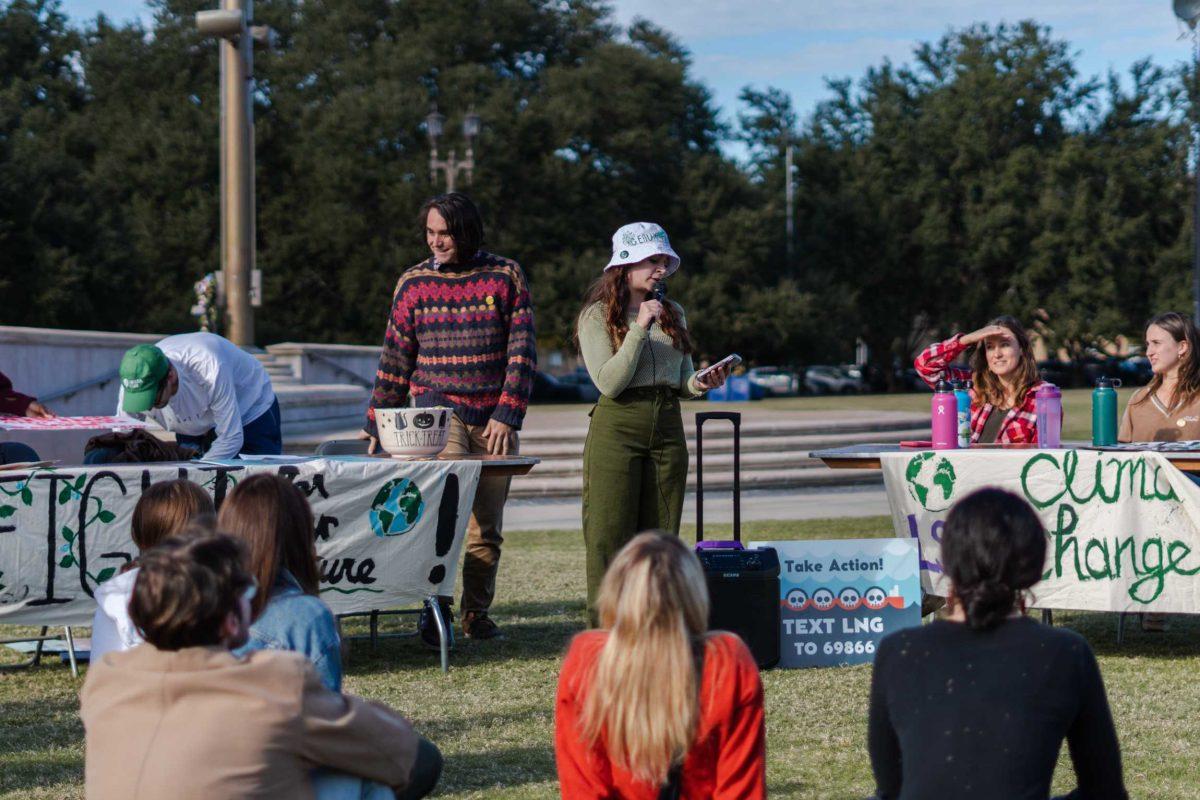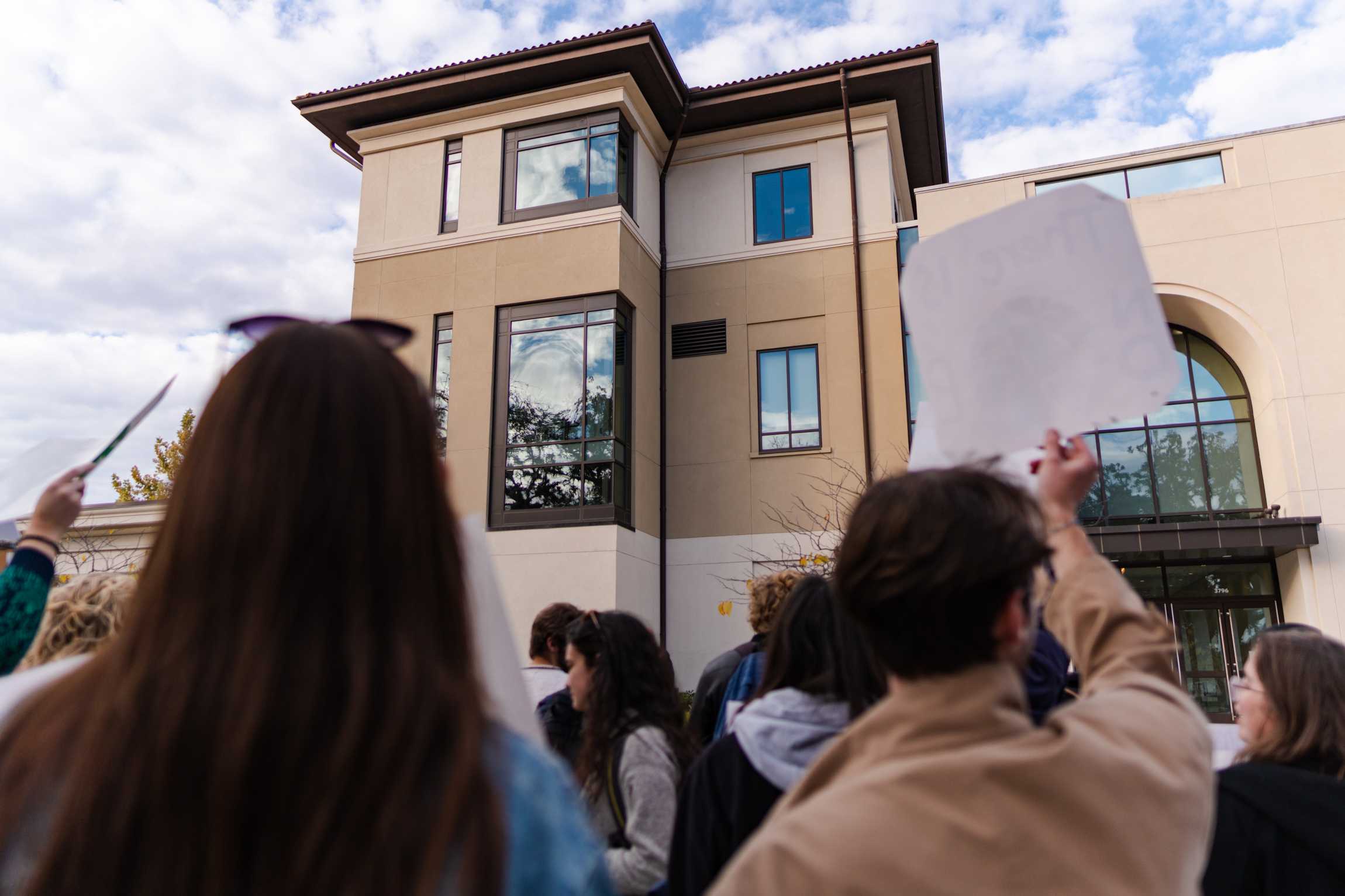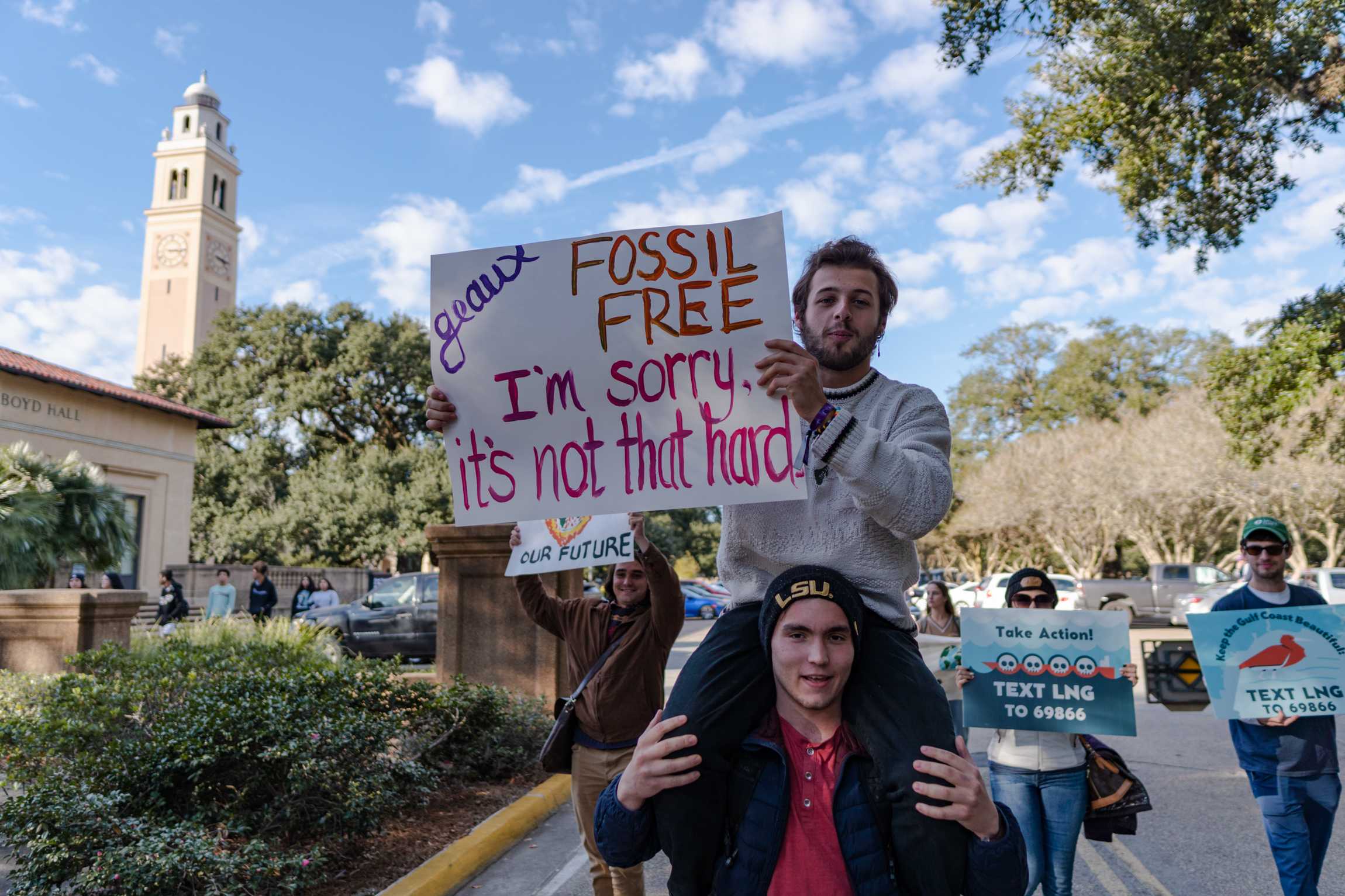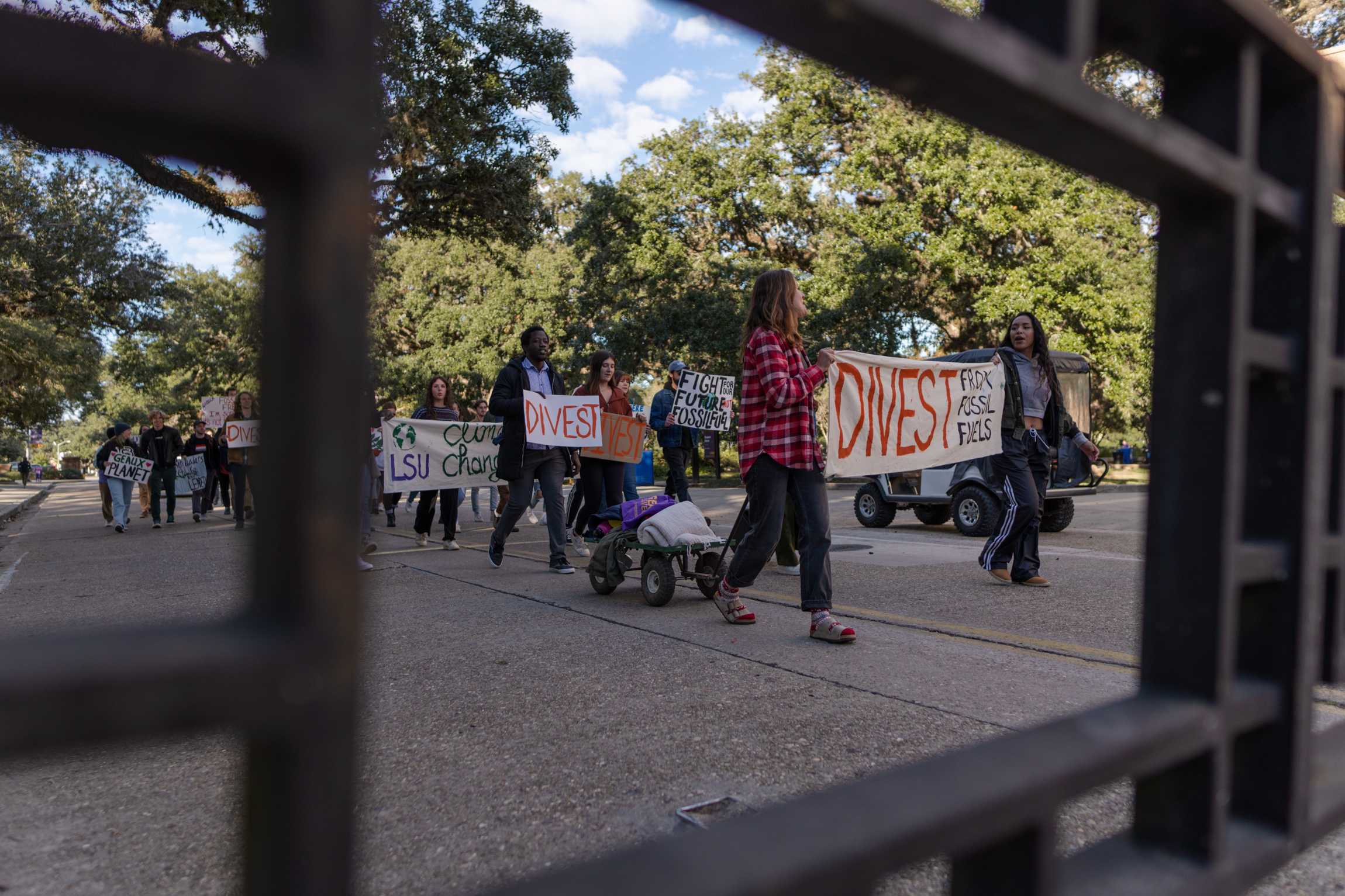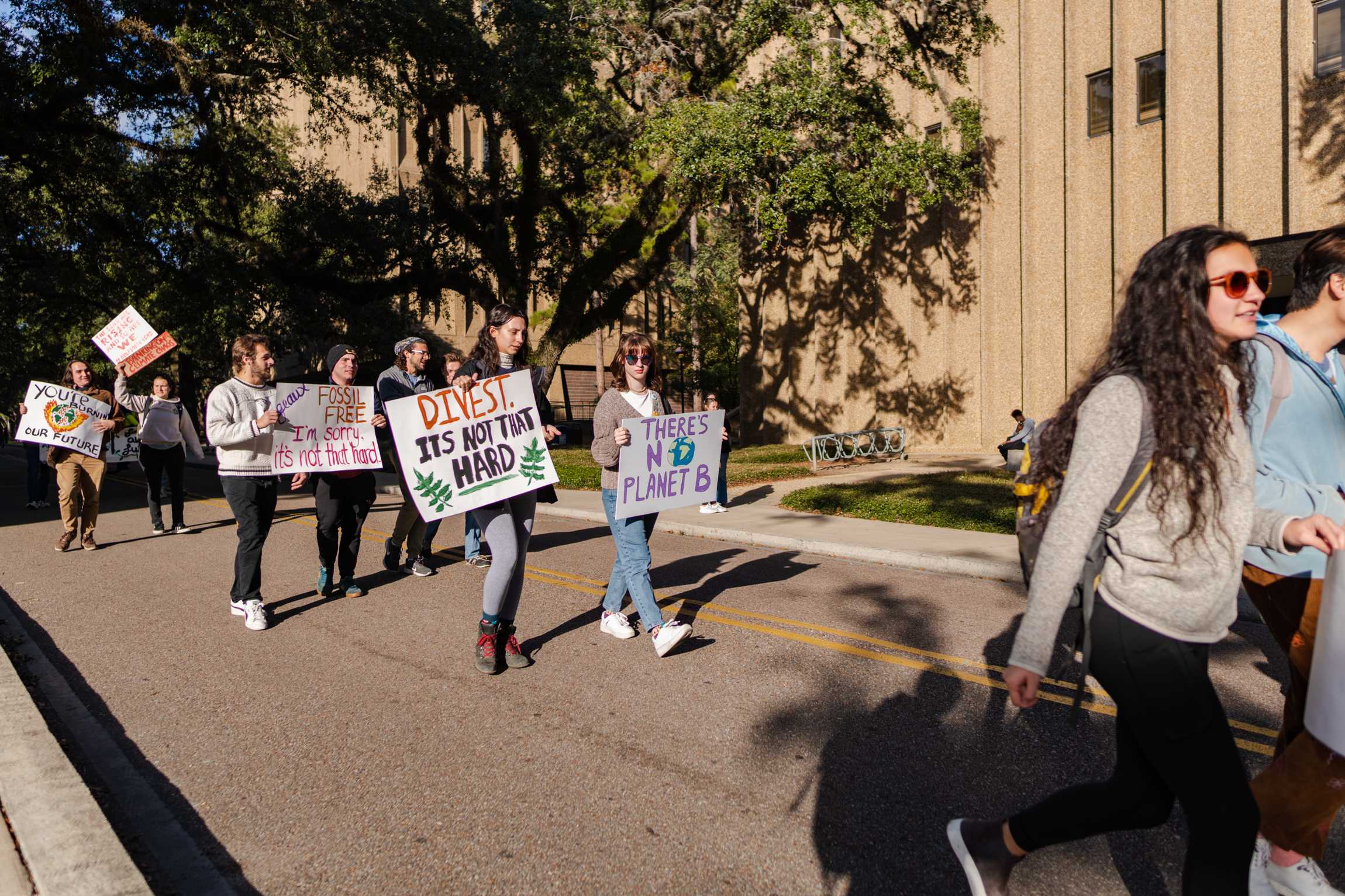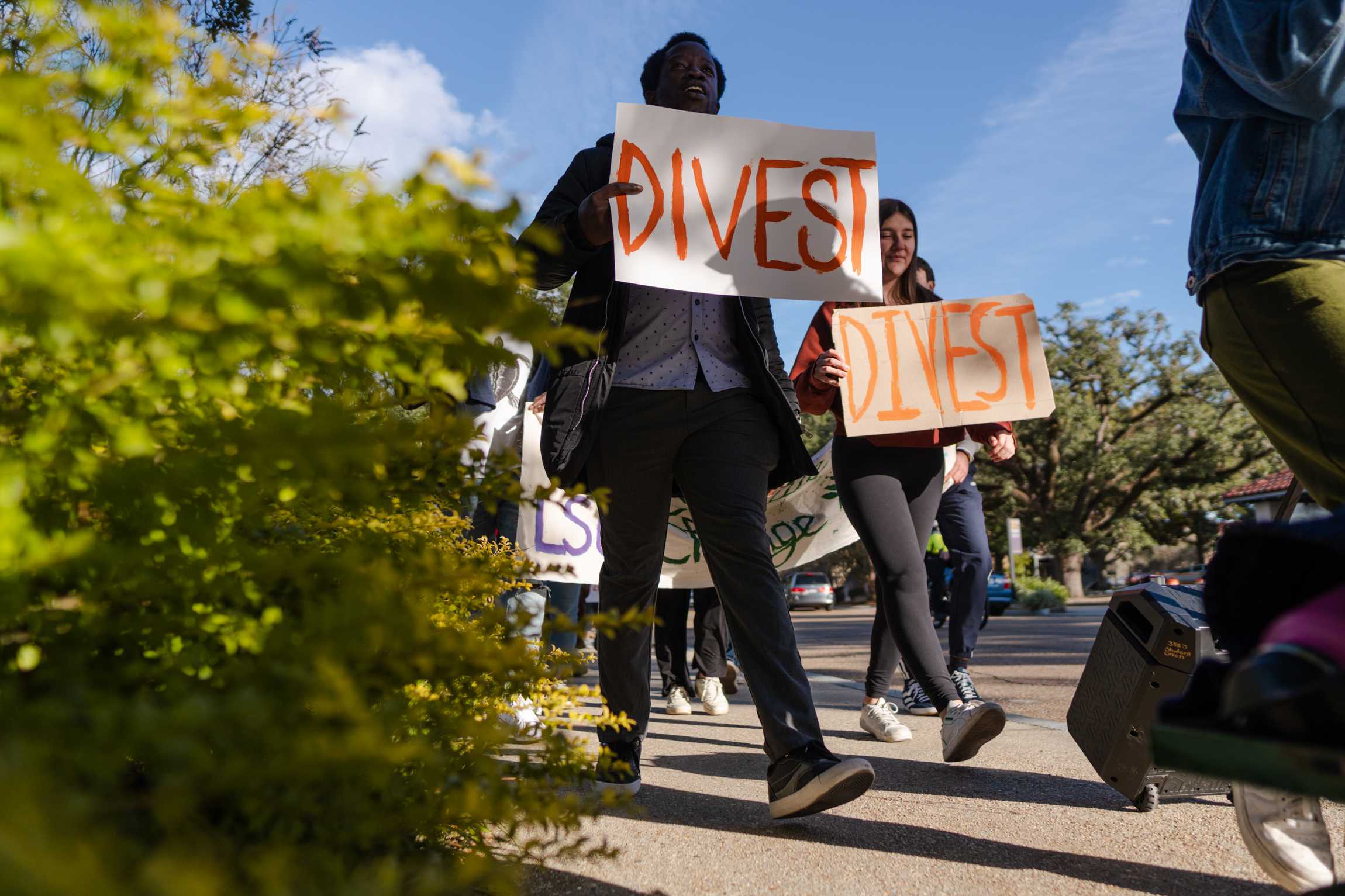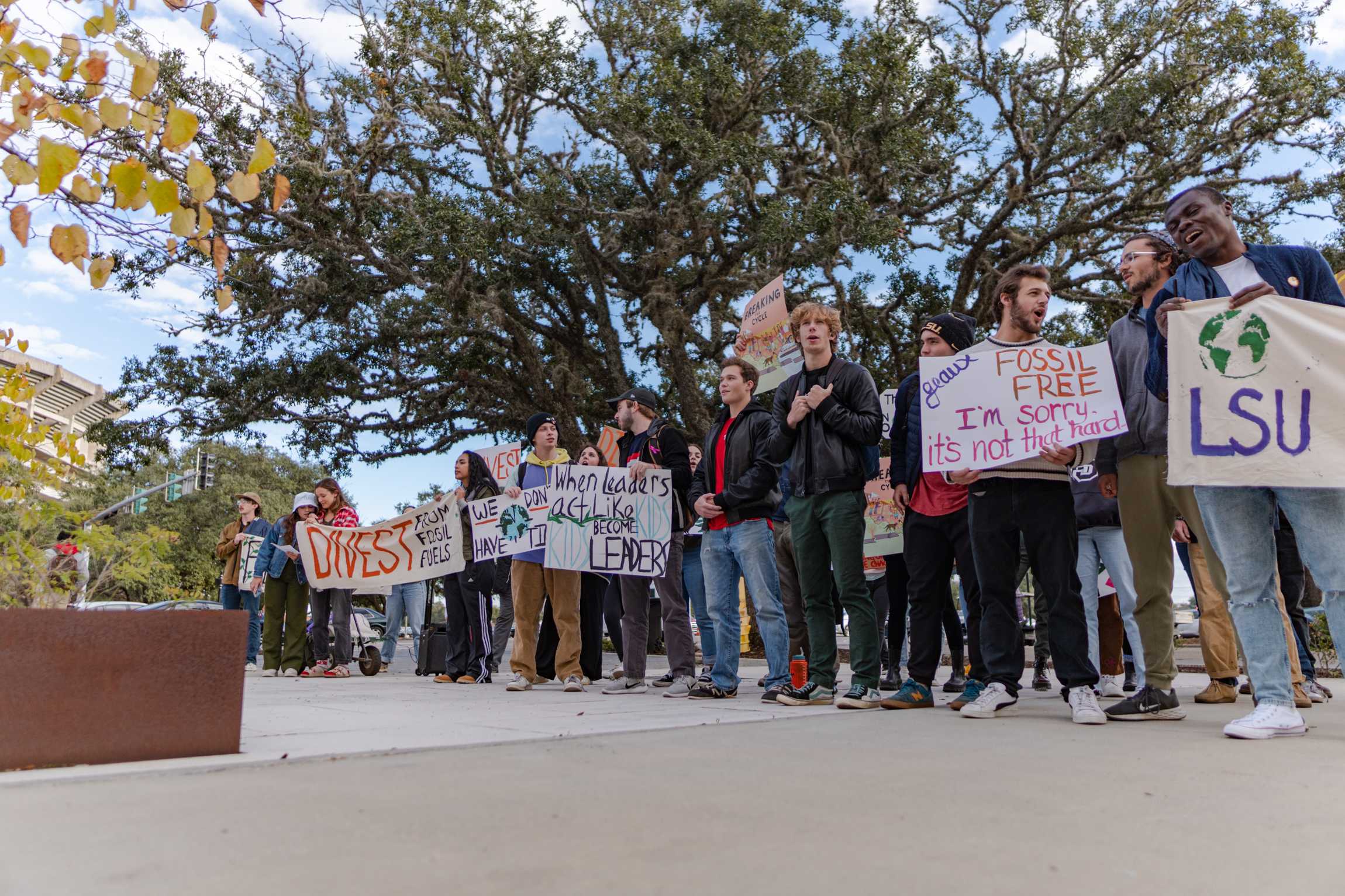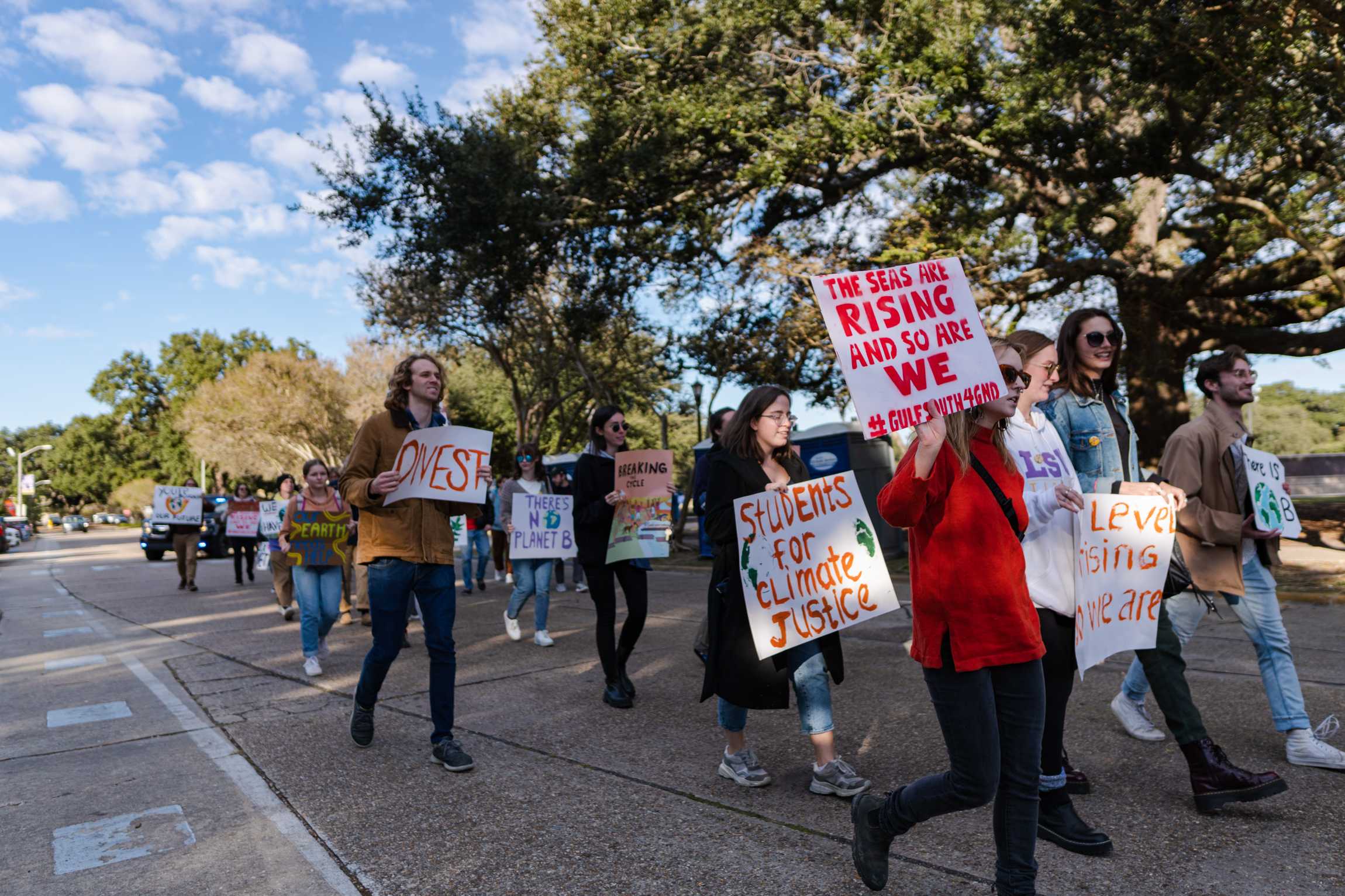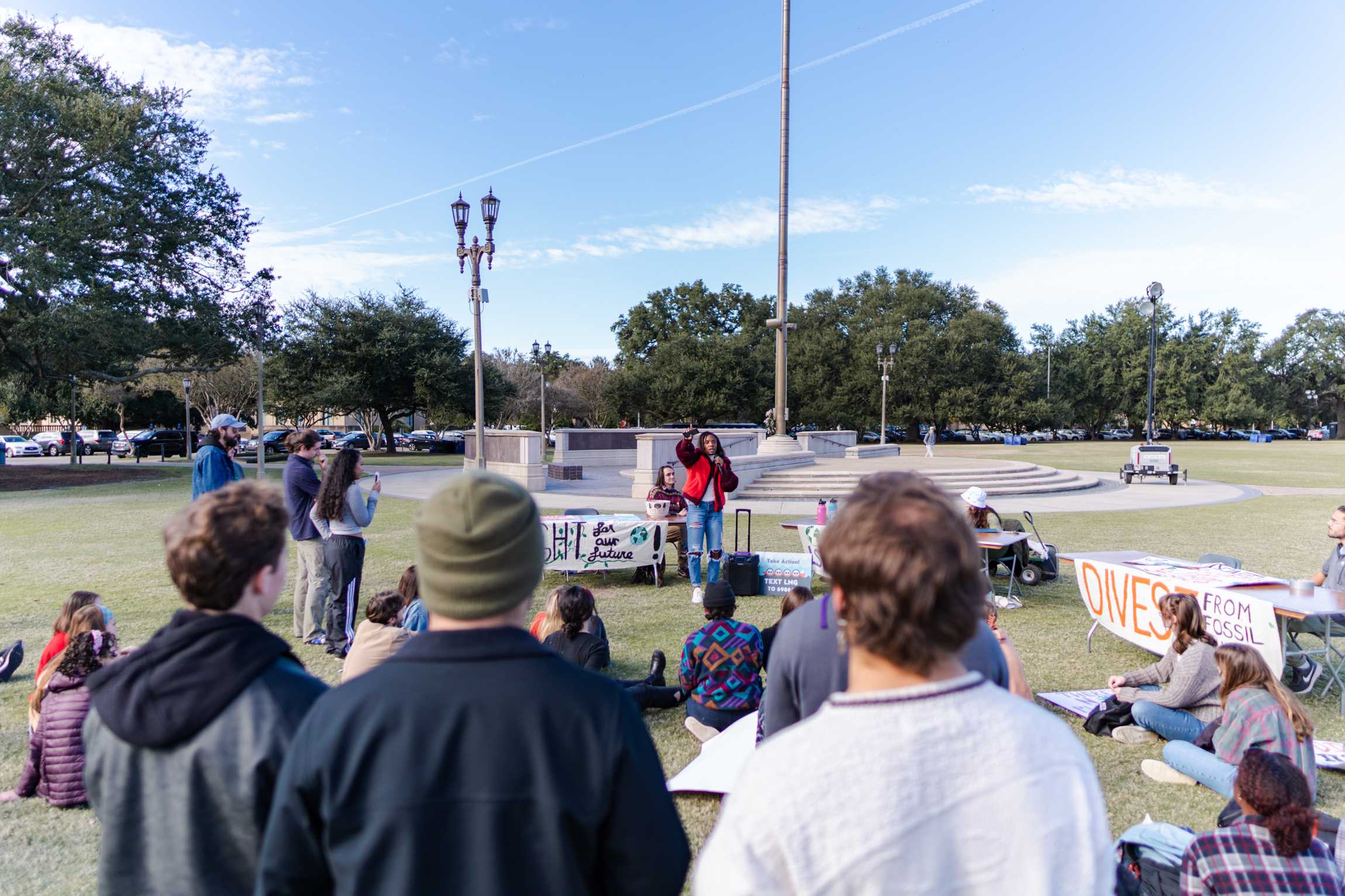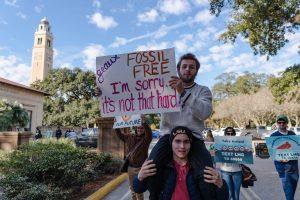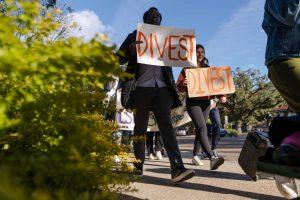Climate activists and students from multiple organizations gathered in the Parade Grounds and marched to the LSU Foundation building on Friday for a climate change rally.
According to international studies senior Emily Clarke, the president of student climate activist organization Geaux Green, the main goal of the march, referred to by organizers as the climate march, was to persuade the LSU foundation to divest funds from fossil fuels.
The climate march also sought to spread awareness and educate LSU students on programs sponsored by organizations like Geaux Green, Climate Pelicans and Geaux Planet to combat climate change, environment management systems senior Cheyenne Autin said .
Autin, the organizer of the event, said that she has been planning the rally since the first week of school. She soon got in touch with Clarke, who assisted with reserving the Parade Grounds, different equipment for the rally, as well as outreach.
“I want to impact people by educating them on how their actions affect their environment, and therefore the planet,” Autin said. “How small negative actions such as littering have much larger effects. And how recycling positively impacts the environment.”
She said that she wants people to understand the importance of unity within the community and how collective action is the only way communities can make a difference in the fight against climate change .
Autin said that the climate march sends a message to the LSU administration to prioritize sustainability within the community such as recycling on game days, educating students on what can be recycled, implementing biodegradable packaging over plastics and overall greater education on the climate crisis.
Clarke said that she is an environmentalist at heart, motivating her decision to become involved in the rally.
“It’s my true passion to do something good for the environment,” Clarke said. “Through the environment, I want to help communities.”
She said that Geaux Green’s focus takes a holistic outlook on sustainability. Geaux Green’s mission is based on the United Nations’ sustainable development goals: no poverty, no hunger, access to healthcare, education and inequality, climate action, access to clean water and access to a clean environment, according to Clarke.
Clarke said that the climate march brings awareness to environmental justice.
“It’s easy for apathy to take root,” Clarke said. “Seeing people care about environmental justice persuade[s] people to learn about it.”
Clarke said that she hopes that following the Climate March, LSU and the LSU Foundation will collaborate with students more to create a better future for students and future generations.
“We won’t stop taking actions and we want LSU and [the] administration [to] work with us,” Clarke said.
Coastal science graduate student Corrine Salters and oceanography doctoral student Ben Farmer created Climate Pelicans in 2021 as an interdisciplinary climate activist group focusing on climate justice and social justice.
“I didn’t see any activist groups around campus and decided to start it ourselves,” Salters said.
Salters said their involvement in the Climate March will show the administration that there’s a student body that isn’t intent with the investment of funds and LSU’s close connection to the fossil fuel industry.
“The fossil fuel industry degrades the environment that many Baton Rouge communities rely on,” Salters said.
Farmer said the Climate March is a lasting legacy for LSU students to build an impact on environmental change.
Oceanography and coastal science doctoral candidate Jill Tupitza is the head of the divesting campaign for Climate Pelicans and has done significant outreach for the event.
Climate Pelicans’ divesting campaign asks the LSU Foundation to divest financial holdings from fossil fuel companies, according to Tupitza. She said that divesting financial holdings would restrict fossil fuel companies’ profit and their license to operate in Louisiana.
“It’s the South saying ‘We are kicking you out,’” Tupitza said. “It’s so important to voice for climate justice coming out of an area such as the deep South that has been ravaged by fossil fuel companies. Having voices within this state that put climate justice at the forefront of the state’s priorities instead of a profit is powerful.”
Climate March raises awareness for environmental issues, calls to divest from fossil fuel companies
November 20, 2022
Rally organizer Cheyenne Autin speaks to those gathered on Friday, Nov. 18, 2022, on the LSU Parade Ground before the march begins.



